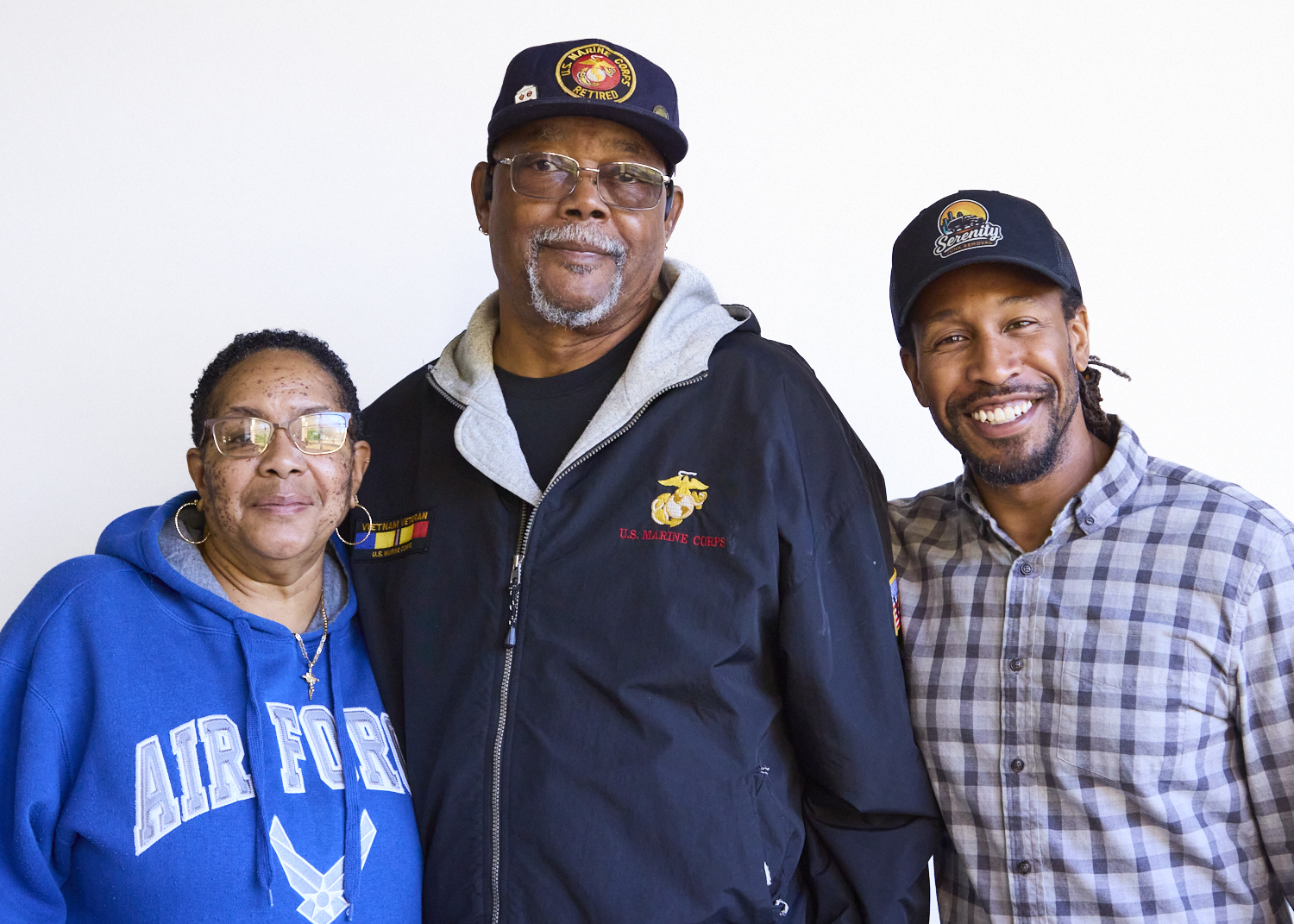When families face the challenges of a loved one’s terminal illness, making decisions about their care becomes paramount. According to recent studies by the Kaiser Family Foundation, while approximately 71% of Americans prefer to spend their final days at home surrounded by loved ones, many aren’t aware of the comprehensive support that makes this possible. Home hospice care provides a compassionate solution that honors this wish while ensuring expert medical support is always available.
At its core, hospice care focuses on comfort rather than cure, emphasizing quality of life and dignity during a person’s final months. While hospice services can be provided in various settings, receiving this care at home offers unique advantages that benefit both patients and their families.
Jump Ahead:
- Advantages of Hospice Care at Home
- Home Hospice Care Services
- Home Hospice Care Supports Caregivers
- Making the Decision About Home Hospice Care
Advantages of Receiving Hospice Care at Home
The Comfort of Familiar Surroundings
Perhaps the most significant benefit of home hospice care is the comfort of remaining in a familiar environment. Being surrounded by personal belongings, cherished memories, and the everyday rhythms of home life provides emotional security that no medical facility can replicate.
For patients, this familiarity reduces anxiety and stress while promoting better rest. They can maintain personal routines and preferences that may have developed over decades. The simple joy of seeing beloved pets, enjoying favorite views, or being surrounded by meaningful photos and mementos brings immeasurable comfort during difficult times.
Enhanced Family Involvement and Togetherness
When hospice care happens at home, family dynamics remain intact, allowing for natural, meaningful interactions. This setting creates opportunities for spontaneous conversations and shared moments throughout the day. Family members can participate in care routines that express love and connection in deeply personal ways.
Special occasions can be celebrated together authentically, creating new memories in a comfortable, private setting. The home environment also makes it easier to include extended family and friends in ways that feel natural and meaningful, strengthening the circle of support around both the patient and immediate family.
Personalized Care in a Comfortable Environment
Home hospice care adapts to the patient’s personal preferences and existing routines rather than established schedules. Care can respect the patient’s natural rhythms, dietary preferences can be easily accommodated, and cultural or religious practices can be incorporated seamlessly into daily life.
The home environment naturally provides privacy and promotes dignity during what can be a vulnerable time. Emotions can be expressed freely without concern for other patients or staff who might be present in a facility setting. Perhaps most importantly, being at home helps preserve one’s sense of self and personal identity.
Services Provided by Home Hospice Care
Home hospice brings a comprehensive team of professionals to support both patients and families, ensuring that expert care is always available.
Expert Medical Care and Symptom Management
The foundation of hospice care is expert medical support focused on comfort and symptom relief. Patients receive regular visits from hospice nurses who specialize in pain and symptom management, with physician oversight ensuring medical care remains appropriate. Families gain peace of mind knowing that 24/7 on-call support is available for urgent concerns.
The hospice team coordinates medication delivery and offers non-pharmacological approaches to symptom management. For those with specific conditions like heart disease, COPD, or dementia, disease-specific care protocols ensure the unique challenges of these illnesses are addressed with expertise. According to the National Hospice and Palliative Care Organization, this comprehensive approach to symptom management is one of the primary reasons families report high satisfaction with hospice care.
Personal Care and Practical Support
Hospice care includes hands-on assistance with daily living needs, provided by compassionate hospice aides who quickly become trusted presences in the home. These skilled professionals assist with bathing, grooming, and personal hygiene, preserving dignity while ensuring comfort.
Their support often extends to light housekeeping related to patient care and assistance with meals and nutrition. Perhaps most valuably, they teach family caregivers proper techniques for safe care, empowering loved ones to participate confidently in the caregiving journey.
Emotional and Spiritual Support
Recognizing that end-of-life journeys affect the whole person, hospice provides dedicated support for emotional and spiritual well-being. Social workers offer counseling and emotional support, while chaplains are available to address spiritual questions according to the patient’s own faith tradition or perspective.
Trained volunteers offer companionship and friendly visits, bringing fresh energy and community connection into the home. Throughout the hospice journey, there’s consistent support for cultural or religious practices important to the patient, ensuring that deeply held beliefs and traditions are honored.
Essential Equipment and Medications
Home hospice care includes the provision of all necessary medical equipment and supplies, removing a significant burden from families. The hospice team arranges delivery and setup of hospital beds, wheelchairs, or other adaptive equipment needed for comfort and safety.
The hospice benefit typically covers all medications related to the terminal diagnosis and symptom management, providing significant financial relief and practical support. Medication delivery to the home eliminates the need for family members to navigate pharmacy visits during an already stressful time.
How Home Hospice Care Supports Family Caregivers
The focus of hospice extends beyond the patient to embrace the needs of family caregivers, recognizing their vital role in the care journey. According to the Centers for Disease Control and Prevention, family caregivers provide the majority of long-term care in the United States, often with limited training or support. Hospice programs are uniquely designed to address this gap.
Education and Training
Hospice teams provide essential knowledge and skills to family caregivers, transforming concerned family members into confident care partners. Through demonstrations of hands-on care techniques and guidance on medication administration, they prepare families for their caregiving role. One of the most valuable aspects of hospice education is gentle preparation about what to expect as the illness progresses, helping families anticipate and prepare for changes.
Round-the-Clock Support
The peace of mind that comes with 24/7 telephone access to nursing support cannot be overstated—a lifeline available at any hour, day or night. When situations arise that can’t be resolved by phone, emergency visits provide hands-on support when needed most. Regular check-ins ensure that care remains appropriate as conditions change, with professional eyes regularly evaluating the situation.
Caregiver Relief and Well-being
Hospice provides valuable respite options tailored to each family’s situation, recognizing that caregivers need breaks to sustain their own well-being. During particularly challenging periods, additional in-home support can be arranged, while volunteer visits offer companionship for the patient while allowing caregivers short breaks.
The emotional impact of caring for a dying loved one is profound, and hospice addresses these needs with sensitivity. Social workers offer counseling for family members struggling with complex emotions, while facilitated family meetings provide a safe space to address concerns and improve understanding among family members.
Continued Support Through Bereavement
Unique to hospice care is the continuation of support for families after their loved one has died. Grief counseling is available for individuals and families struggling to adjust to life without their loved one. Throughout the first year of bereavement and sometimes beyond, follow-up contacts from the hospice team ensure that families don’t feel deserted in their grief but continue to receive compassionate support.
Making the Decision About Home Hospice Care
Choosing hospice care at home is a deeply personal decision that depends on factors unique to each family situation. The best time to learn about hospice options is before you urgently need them. Hospice becomes appropriate when curative treatments are no longer the focus and when a physician determines that life expectancy is likely six months or less if the disease follows its expected course.
Financial concerns shouldn’t be a barrier to receiving quality end-of-life care. Most hospice care is covered by the Medicare Hospice Benefit, which typically pays for all necessary services with little to no cost for the patient or family. Private insurance and Medicaid also often cover hospice care.
It’s also worth noting that the choice isn’t permanent—if home care becomes too challenging, transitions to inpatient hospice settings remain an option. This flexibility allows families to adapt as needs change, always keeping the patient’s comfort and quality of life at the center of decision-making.
Find Compassionate Home Hospice Care
If you’re considering hospice care at home for a loved one, Carolina Caring is here to help. Our comprehensive hospice services are designed to support both patients and families through every aspect of the end-of-life journey. From expert symptom management to emotional support and practical assistance, we’re committed to helping you make the most of each day. To learn more about our hospice care services, contact our care team today.




